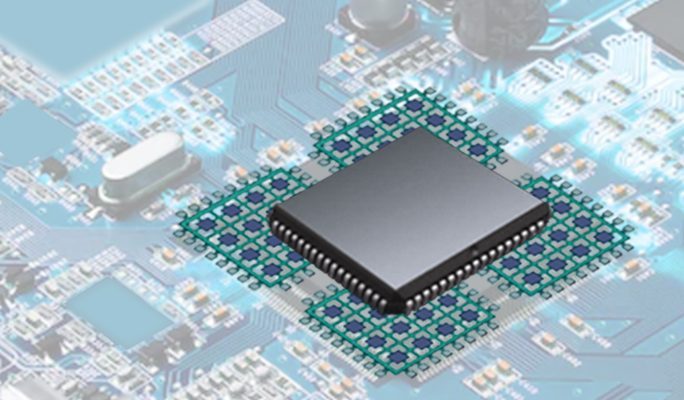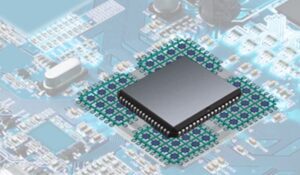FPGA DESIGN AND EMULATION
FPGAs – soft silicon for hard problems.
We don’t leave home without one.
FPGA Design Services are truly the wild card in the hardware engineer’s design pack. Ignitarium has leveraged FPGA Design Services to enable compute-intensive, low-volume system realizations and to create quick prototypes. We specialize in FPGA Emulation Services, working on the emulation of complex Multimedia SoCs partitioned across multiple FPGAs. With alliance partnerships with Xilinx and Intel-Altera, we have emerged as a key partner for many system companies in their FPGA-based product deployments.
Do it right with Ignitarium
FPGA Design Services: System Architecture to product testing
Ignitarium has deep understanding of various FPGA families and their key differentiators. We have tools for early analysis and selection coupled with years of experience working on multiple FPGA based designs. Our competencies include :
- System architecture and FPGA selection
- Software-hardware partitioning
- Creating a microarchitecture using FPGA-vendor provided IPs and Custom IPs
- Converting custom algorithms to efficient code
- FPGA synthesis and time closure
- FPGA testing using customer software and test equipment like frame grabbers and protocol analyzers
- Final product testing
FPGA Prototypes: Enabling early design confidence
An early confidence metric that semiconductor companies look forward to, before starting down the path of a costly ASIC design, is to create a quick FPGA design based prototype of their custom logic or algorithm. At Ignitarium, our combined hardware and software teams have created many ASIC prototypes using FPGAs by performing the following sub tasks:
- Selection of an off-the-shelf FPGA platform to enable the prototype
- Evaluate whether the custom algorithm could be ported using available High Level Synthesis tools or using Matlab. If performance targets cannot be met, hand-code the algorithm into HDL
- Develop associated software test frameworks using QT or other similar platforms
- Synthesis and Bitfile generation
- Testing the prototype using the test framework
FPGA Emulation Services: Accelerating software cycles
FPGA Emulation has become an integral part of the SoC design flow to enable early software development and enhance confidence on silicon. Ignitarium has expertise in emulation boxes like Palladium, Veloce and Zebu as well as mainstream FPGA-based emulation boards like HAPS and Prodesign FPGA. Our emulation expertise includes:
- SoC Partitioning across multiple FPGAs
- Porting technology specific cells to FPGA cells
- RTL changes for handling clock and reset through FPGA specific components like DCMs and PLLs
- Changes specific to Analog macros and PHY interfaces
- Synthesis and timing closure
- Diagnostic testing
- Working closely with the software team to enable debug
Case Studies


FPGA DESIGN AND EMULATION
FPGA Emulation of a Quad Core A9 based Multimedia SoC
learn More

FPGA DESIGN AND EMULATION
Video Pipeline implementation for an Endoscopy device
Creating the entire FPGA-based solution for converting the endoscopy camera feed to processed video to be directly displayed on two HDMI 4K displays.
learn More

FPGA DESIGN AND EMULATION
FPGA Emulation for ARM Based Processor
learn More
Case Studies

Contact Us
We're here to help! Reach out to us with any questions or inquiries.

FAQs?

FPGA design involves creating digital circuits using programmable logic devices, while FPGA emulation refers to the process of simulating or testing these designs before physical implementation. Design focuses on creating the logic structure, while emulation validates its functionality.
FPGA design offers flexibility and rapid prototyping capabilities, allowing designers to implement custom logic and algorithms in hardware. It enables the development of specialized hardware solutions tailored to specific applications, reducing time-to-market and development costs.
Popular tools for FPGA design include development environments such as Vivado, Quartus, and Libero, along with hardware description languages like Verilog and VHDL. Design methodologies such as RTL (Register Transfer Level) coding and high-level synthesis are commonly employed for efficient design implementation.
FPGA emulation allows designers to test and validate FPGA designs in a simulated environment before committing to physical hardware implementation. It enables early detection of design errors, verification of functionality, and performance analysis, helping to mitigate risks and ensure design integrity.
FPGA emulation offers faster simulation speeds and more accurate representations of hardware behavior compared to traditional software-based simulations. It allows designers to interact with real-world interfaces and peripherals, providing a more realistic testing environment for complex FPGA designs.







































